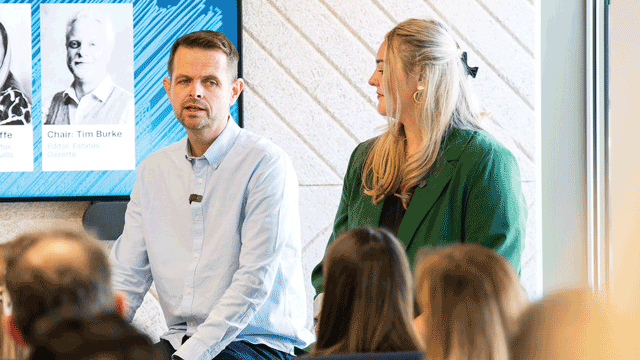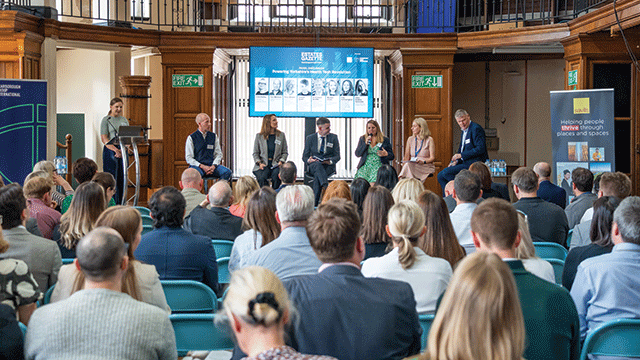As a teacher in an inner-city primary school in Leeds a decade ago, Nathan Atkinson saw first-hand the impact that food poverty has on children. Returning to school after the autumn half-term holiday to a broken boiler, he and his colleagues made sandwiches for the children. That afternoon, faced with behaviour that was worse than normal, Atkinson asked one child why – and the child pointed to his stomach.
“’I’ve been at home for a week, and all I’ve had is bread and crisps,’” Atkinson recalled the 10-year-old saying. “‘Normally on the first day back, you give us a roast dinner. You gave me more bread and more crisps. And I’m hungry.’”
The conversation stopped Atkinson in his tracks. “You want to see true grit, see a child who’s been up till 4 in the morning because of a crazy party at their house, they haven’t eaten since lunch the day before at school, and they’re coming in, bringing some of their younger siblings to school, and then they’re sitting there and you’re [as a teacher] going, right, why are you not learning at the rate you’re supposed to be?” he said. “I went on a mission to remove hunger as a barrier to learning.”
Food bank crisis
That mission led to the 2018 establishment of Rethink Food, a not-for-profit with a focus on fighting food insecurity and food waste. Atkinson explained the organisation’s work at an event held as part of the UKREiiF conference alongside Savills, which has supported the venture since 2019.
The team, led by co-founders Atkinson and Kevin Mackay, works with schools, communities and businesses to help young people better understand the connection between food, health and sustainability.
Last year the organisation rescued and redistributed more than 500 tonnes of surplus food, creating more than 900,000 meals for families, schools and communities. Now it’s launching the National School Pantry Network. This will provide funding and support to schools, with each school receiving direct funding to provide food support for families for every £5,000 raised.
“There are now 4,000 schools that are providing food support, food banks, food aid to communities. That makes schools the biggest providers of food banks in the country. We’ve been on a journey that started with crisis, and we’ve built in education support and motivation… So much has changed, so much has improved, but alongside that the vulnerability has also increased
with the pandemic and then the cost-of-living crisis.”
Long-term partnerships
Speaking at the same event, Olivia Sutcliffe, an associate director in the social value team within Savills Earth, called for real estate to step up across the board, offering space to community youth clubs, for example, with properly equipped kitchens.
“As a developer there’s an opportunity to directly support with planning, providing all these resources,” she said. “There’s so many different ways you can help, but the only way you’re going to effectively be able to do this is through partnerships. Partnerships are absolutely of paramount importance when you’re trying to support communities. We’re walking the walk, by doing it through partnerships… not just financial donations, but thinking about truly building long term partnerships and long-term stewardship.”
Sutcliffe added that her ask of real estate is to start thinking about communities earlier and earlier in a project. That could be community gardens, allotments or a myriad of other ventures.
“If you’re in the development context or planning context, think about it right at Riba stage zero,” she said. “If you’re in use, think about it now. Not tomorrow, not next week, not in a year, not in the next financial year. Start having those conversations now. The earlier you start these conversations, the better. What we’re understanding is the ways, creatively, that we can help address food poverty and support the next generation.”
IN PARTNERSHIP WITH
Send feedback to Tim Burke
Follow Estates Gazette












